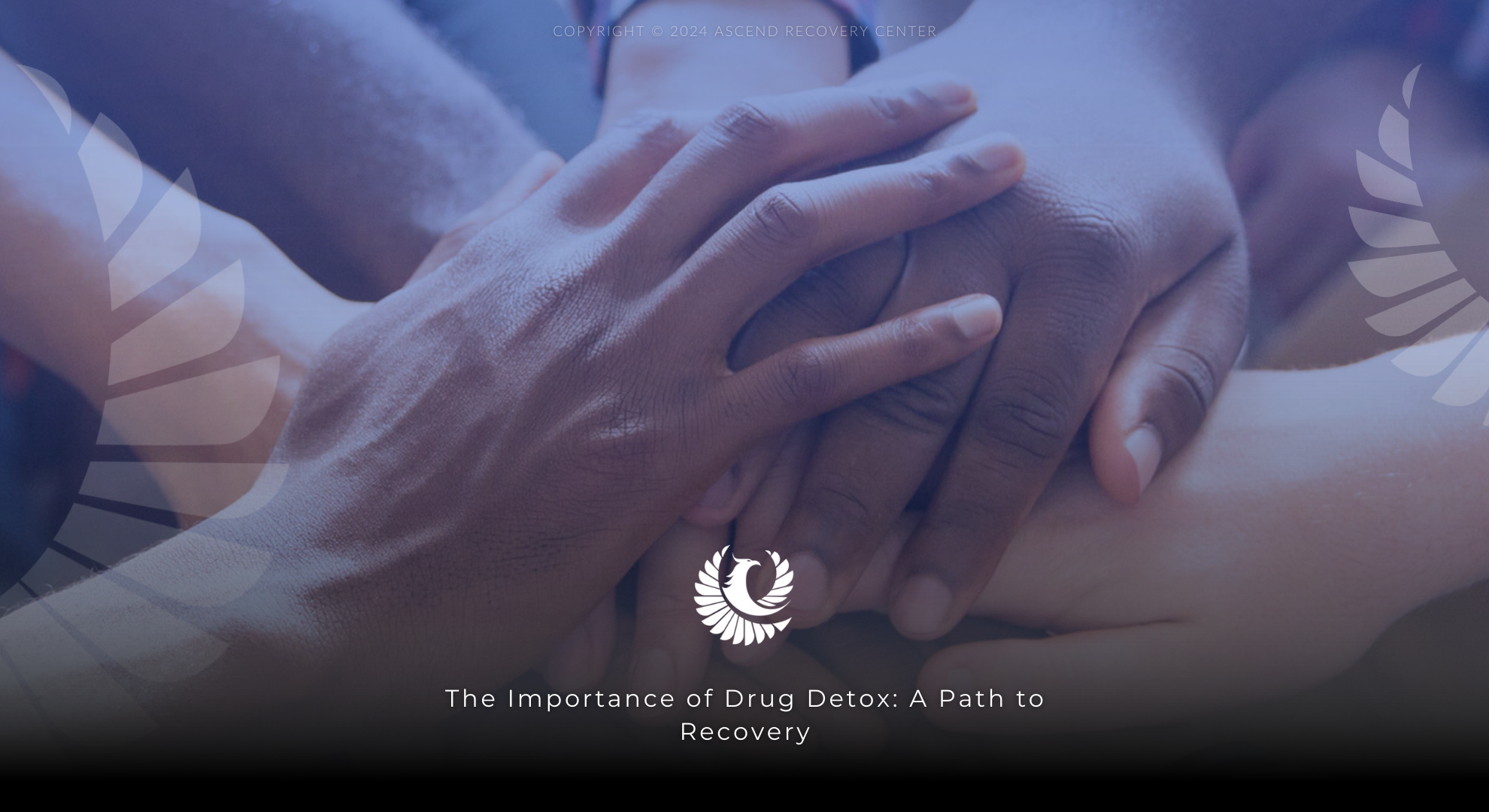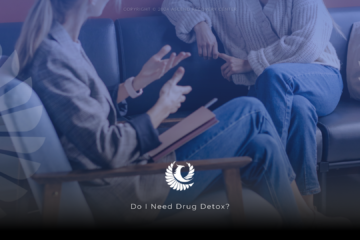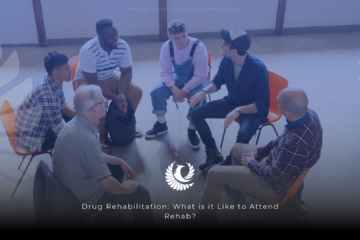When someone is trapped in the cycle of addiction, taking the first step toward recovery can be daunting. That’s where drug detox comes in. Detoxification, or detox, is a crucial process that helps individuals overcome their physical dependence on drugs or alcohol. It serves as the foundation for a successful recovery journey, providing the necessary stability and readiness to address the underlying psychological aspects of addiction.
In this comprehensive guide, we will explore the intricacies of drug detox, its significance in the recovery process, and the various components involved in a medically assisted detoxification program. By understanding the process, symptoms, and treatment options, individuals and their loved ones can make informed decisions and embark on a path to lasting sobriety.
What is Drug Detox?
Drug detox is a crucial first step in addiction recovery, aimed at removing all traces of drugs or alcohol from the body. It allows individuals to achieve physical stability and prepare for the psychological aspects of addiction treatment. While not every addiction treatment program requires detox, it is often recommended to ensure a solid foundation for rehabilitation.
The Detox Process
The detox process involves the gradual reduction and elimination of substances from the body. As the brain adjusts to the sudden absence of drugs or alcohol, individuals may experience withdrawal symptoms. These symptoms vary depending on factors such as the substance abused, duration of addiction, and overall health.
During the detox process, individuals undergo a thorough medical assessment to create a personalized detox plan. Medical professionals closely monitor patients, providing medication and around-the-clock support to minimize withdrawal symptoms and ensure their safety and comfort.
Withdrawal Symptoms
Withdrawal symptoms can manifest both physically and psychologically, reflecting the body’s adjustment to the absence of drugs or alcohol. Physical symptoms may include nausea, vomiting, shaking, sweating, headache, and muscle pain. Psychological symptoms can encompass anxiety, depression, irritability, and intense cravings for the substance.
The severity and duration of withdrawal symptoms vary among individuals. Factors such as the type of substance abused, duration of addiction, and overall health play a significant role. It’s essential to remember that each person’s detox experience is unique, regardless of whether they have undergone detox previously.
Medications in Detox
Medication plays a crucial role in managing withdrawal symptoms and ensuring a safe detoxification process. Although no medication can entirely eliminate all withdrawal symptoms, certain medications can help alleviate anxiety, depression, insomnia, and other associated issues. The administration of medication is carefully controlled and tailored to each individual’s needs.
Anticonvulsant for Alcohol Detox
Anticonvulsant medications are commonly prescribed to aid in the prevention of seizures. They play a crucial role in alcohol detoxification by mitigating the risk of alcohol withdrawal seizures. Additionally, these medications effectively alleviate alcohol cravings, making them an indispensable component of treatment. Commonly used anticonvulsants are:
- Carbamazepine.
- Valproic acid.
- Gabapentin.
- Vigabatrin.
Benzodiazepines for Drug Detox
Benzodiazepines are commonly prescribed by medical professionals to effectively manage anxiety symptoms. Moreover, they play a vital role in mitigating the severity of alcohol or benzodiazepine withdrawal syndrome. In addition, they have shown promising results in reducing the occurrence of seizures and delirium tremens when administered promptly during alcohol or benzodiazepine withdrawal. Here are some commonly used benzodiazepines for alcohol or benzodiazepine detoxification:
- Librium (chlordiazepoxide).
- Valium (diazepam).
- Ativan (lorazepam).
- Oxazepam.
Methadone for Opioid Detox
Methadone plays a vital role in a comprehensive treatment plan for medically supervised withdrawal from opioids. It’s an approved solution for treating opioid use disorder and offers long-term support beyond just the withdrawal phase.
By reducing cravings and alleviating withdrawal symptoms, Methadone empowers individuals in their journey to recovery, preventing the transition from prescription opioids to illicit substances such as heroin. Its efficacy makes it a game-changer in combating opioid addiction.
Phenobarbital for Drug Detox
Phenobarbital is a barbiturate anticonvulsant that is occasionally utilized for sedation and alcohol withdrawal. However, its utilization is becoming progressively uncommon.
It’s important to note that barbiturates, including phenobarbital, carry a high risk of addiction, and consuming excessively large quantities (known as a phenobarbital overdose) can have fatal consequences. Therefore, close monitoring by a medical professional is crucial to ensure safe usage.
Buprenorphine For Drug Detox
Buprenorphine functions by alleviating symptoms of opioid withdrawal and curbing cravings, effectively impeding the euphoric effects frequently associated with illicit opioid intake. Notably, buprenorphine offers additional advantages, such as heightened safety in opioid overdoses and reduced susceptibility to opioid misuse.
Subutex
Subutex, a brand name for buprenorphine, is often mistaken for Suboxone. However, these medications differ. While buprenorphine is the primary ingredient in Suboxone, it also includes naloxone—an opioid overdose reversal agent. It is important to note that Suboxone is administered only after opioids are completely eliminated from an individual’s system.
The Duration of Detox
The average duration of a drug detox process ranges from 7 to 14 days. However, the duration can vary based on several factors, including the substance abused, the severity of withdrawal symptoms, and the individual’s physical and mental functioning. It’s important to note that detox is just the beginning of the recovery journey and is typically followed by a comprehensive addiction treatment program.
The Role of Detox in Recovery
While detox is a crucial component of addiction treatment, it is not a standalone solution. Detoxification primarily addresses the physical aspects of addiction, preparing individuals for the psychological and behavioral aspects of recovery. It sets the stage for further rehabilitation and helps individuals build a solid foundation for lasting sobriety.
Transitioning to Rehabilitation
Following a successful detoxification process, individuals are ready to transition into a comprehensive addiction treatment program. Alcohol or drug rehab programs typically span 28-60+ days and involve intensive psychological therapy. These programs aim to address the underlying causes of addiction, provide coping strategies, and equip individuals with the necessary tools for long-term recovery.
Finding a Drug Detox Center
Seeking professional help is crucial when considering drug detox. A medically assisted detox program, conducted within a specialized facility under the care of trained professionals, offers the highest level of safety, comfort, and support. Consulting with a physician, therapist, or drug addiction helpline can guide individuals in finding a suitable detox center that meets their unique needs.
Drug Detox at Ascend Recovery Centers
Ascend Recovery Centers, located in Florida, New Mexico, and North Carolina, offers comprehensive drug and alcohol detox services, residential treatment, partial hospitalization, and intensive outpatient programs. With a focus on evidence-based care and a compassionate, supportive approach, Ascend Recovery Center provides individuals with the resources and guidance they need to overcome addiction and achieve lasting recovery.
Drug detox marks the beginning of the journey to recovery, providing individuals with the physical stability necessary to address the underlying psychological aspects of addiction. With a comprehensive understanding of the detox process, withdrawal symptoms, and treatment options, individuals can make informed decisions and embark on a path to lasting sobriety. At Ascend Recovery Center, individuals can find the compassionate care and support they need to overcome addiction and reclaim their lives. Give our admissions team a call today to save your future and reconnect with what is most important.









